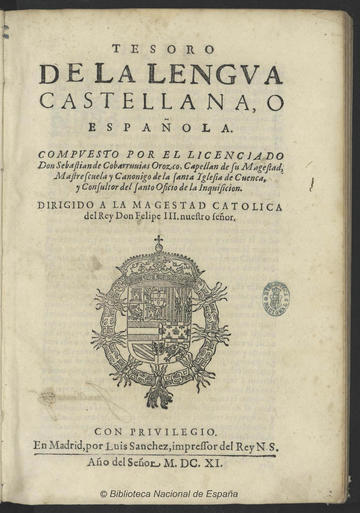We are delighted to announce that Professor Jacques Lezra (UC Riverside) will host two CEMS Masterclasses in Hilary Term 2024. These masterclasses will explore early modern lexical culture and the politics of conversion through Sebastián de Covarrubias’s Tesoro de la lengua castellana (1611): the earliest encylopedic European dictionary.
Professor Lezra is a scholar of comparative as well as Spanish-language literature. His research spans the fields of philosophy; the literature and visual culture of Spain and Europe in the early modern period; Marx and Marxism; and the theory, philosophy and practices of translation. Professor Lezra has published widely on Cervantes, Lope, Shakespeare, contemporary and early modern translation theories and practices, Freud, Althusser, Woolf, animality studies, and other topics. He is currently a visiting fellow at Merton College.
These masterclasses will take place on Wednesday 21st and Friday 23rd February 2024, 13.00–14.30, in The Mure Room, Merton College. Tea, coffee, and biscuits will be provided, but please feel free to bring your own lunch.

Abstract: The earliest encyclopedic European dictionary, Covarrubias's 1611 Tesoro de la lengua castellana, is also conceived as an instrument for the evangelisation and education of so-called newly-converted Muslims (the moriscos, as they're also known). Covarrubias himself--an inquisitor, a clergyman, a converso, a member of a family of humanists, legal scholars, and bishops--seems to have led a more or less quiet life until he was seconded to the region of Valencia to help in efforts to convert and educate the moriscos. Can we establish a general relation between the lexicographic project and the religious-political one? Would the relation hold even in contexts--France, England--where no explicit program of conversion was contemplated? How was this double project shaped by (and how did it contribute to shaping) the ongoing evangelization and "education" of indigenous American populations? These workshops will work with the published Tesoro, its "Suplemento" of 1613 (not published until 2001), and archival material collected in preparation of a Biography of Covarrubias.